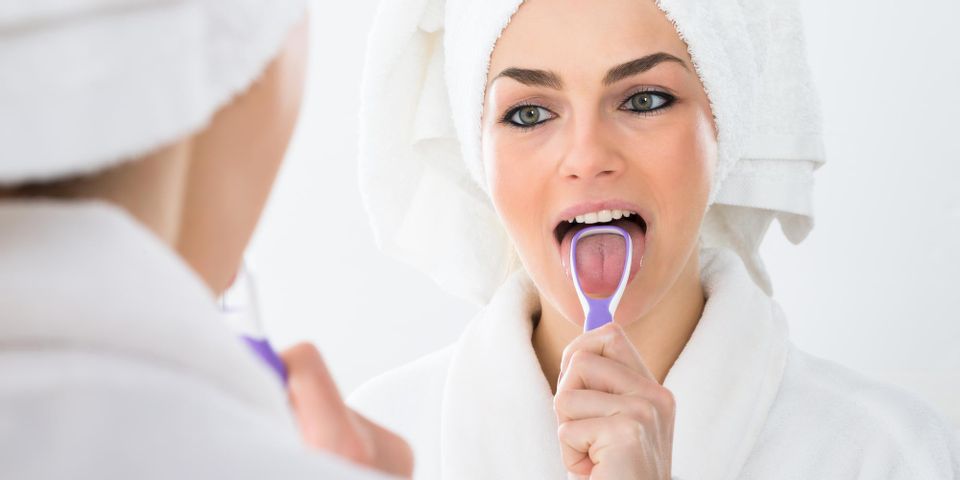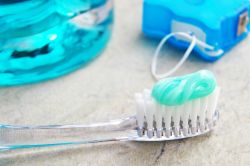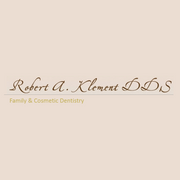
Even those with excellent teeth cleaning habits often miss a vital part of oral hygiene: the tongue. Cleaning this area is as important as regularly flossing and brushing. The guide below explains why this step should be part of your daily hygiene routine.
Why You Should Clean Your Tongue
Bacteria that can cause tooth decay, bad breath, and gum disease live on the tongue. They can accumulate in the rougher surfaces of the taste buds, releasing acids that contribute to cavities and enamel wear.
Multiple studies suggest that tongue scraping reduces the risk of bad breath and caries. In one study, regular tongue cleaning almost completely eliminated plaque. However, participants who only rinsed their mouths saw their plaque levels increase. Therefore, rinsing alone won’t dislodge these bacteria, so you need to actively clean the tongue to reduce the risk of decay and freshen your breath.
How to Clean Your Tongue
 After teeth cleaning, run the brush sideways across your tongue to remove buildup. Then, use a tongue scraper. Extend your tongue as far as you can, gently running the tool along the surface once or twice from back to front. Rinse the scraper in warm water after each pass.
After teeth cleaning, run the brush sideways across your tongue to remove buildup. Then, use a tongue scraper. Extend your tongue as far as you can, gently running the tool along the surface once or twice from back to front. Rinse the scraper in warm water after each pass.
Whether brushing or scraping, remember not to place too much pressure on the tongue. Abrasions can offer pathways to bacteria, increasing the risk of oral infections. After using the scraper, clean it with soap and dry it thoroughly before storing it to remove bacteria.
For further advice on tongue and teeth cleaning, turn to Robert A Klement, DDS, in Wisconsin Rapids, WI. Dr. Klement and his team of caring professionals have offered exceptional family dentistry services to Wood County residents since 1983. During your dental checkups, he will provide individualized advice and guidance on maintaining your oral hygiene at home. Learn more about their services online, or call (715) 421-3030 to schedule an appointment.
About the Business
Have a question? Ask the experts!
Send your question

